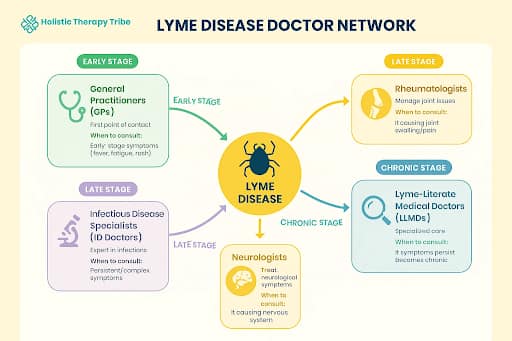
When an individual is battling with Lyme disease, choosing the right doctor can be quite crucial. With the complexities of the symptoms and its impact on the body, having a knowledgeable and experienced healthcare provider can help in making all the differences in getting an accurate diagnosis and effective treatment. So who is the right doctor for you?
A right doctor is not just a healthcare provider; they are your partner in sailing through the complexities of Lyme disease. They can help you get the care you need for the best possible outcome. A right doctor will definitely aid you and curate a treatment plan that will help you regain your health and vitalities.
Types of Doctors Who Can Help You with Lyme Disease
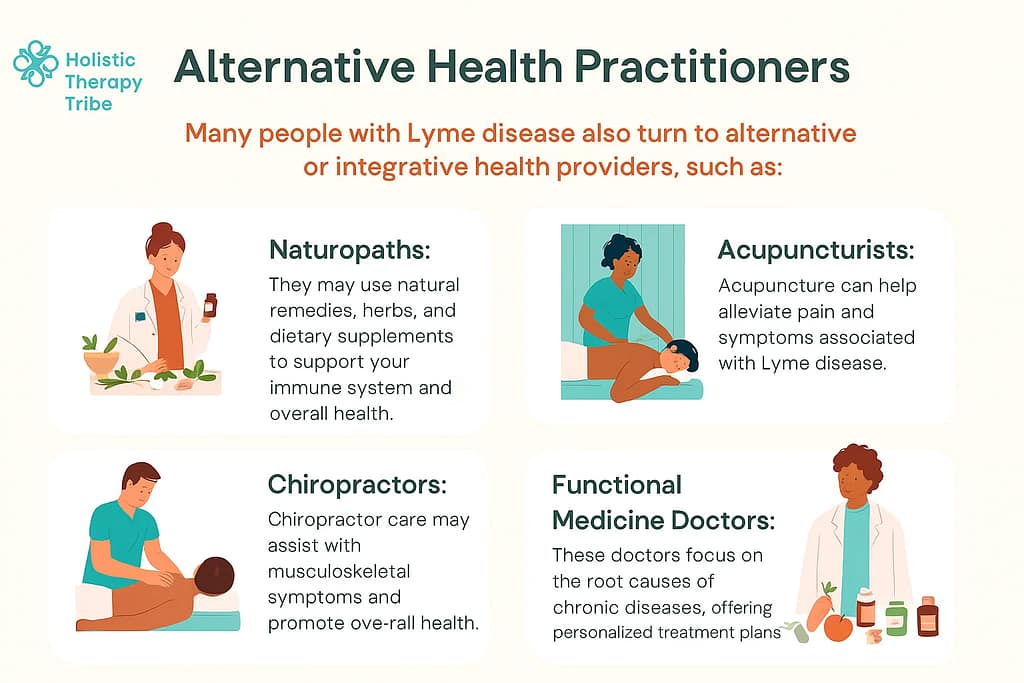
When it comes down to Lyme disease, the right doctor can make a significant impact on yourself. Right from diagnosis, treatment, recovery, and so on..
There are main types of healthcare providers who will play a crucial role in your Lyme disease journey.
1. General Practitioners and Specialists:
General Practitioners (GPs): Your primary doctor is the first point of contact while you are experiencing symptoms. This can aid in assessing your condition – when it comes to doing initial tests, and refer you to specialists if necessary. GPs might have basic knowledge of Lyme disease but they will help you ahead.
Specialists: If your symptoms are highly complex or if your GP suspects Lyme disease; they will refer you to a specialist, such as Neurologists- For neurological issues such as brain fog, nerve pain, or cognitive symptoms.
Rheumatologists- Causes joint pain or symptoms that mimic autoimmune conditions.
2. Role of Infectious Disease Doctors:
The specialists have advanced training in diagnosing and treating infections. They are skilled in managing complex cases and can offer more in- depth treatment options; especially when Lyme is in chronic stage. ID specialists can provide conventional treatment for Lyme disease including antibiotics. They are involved in management of Post-Treatment Lyme Disease Syndrome (PTLDS) where patients experience persistent symptoms after the completion of conventional antibiotic therapy.
3. Lyme-Literate Medical Doctors (LLMDs)
LLMDs are physicians that have specialization, knowledge, and experience in diagnosing and treatment of Lyme disease. They usually incorporate a comprehensive approach to treatment. The approach is a course of extended antibiotics for the patients with persistent symptoms. However this practice is controversial and not universally acceptable. They will utilize adjunctive therapies that consist of herbal treatments, nutritional support, immunity modulation methods – in all a multidisciplinary approach to address the multifaceted nature of chronic Lyme disease.
Key Qualifications and Experience to Consider
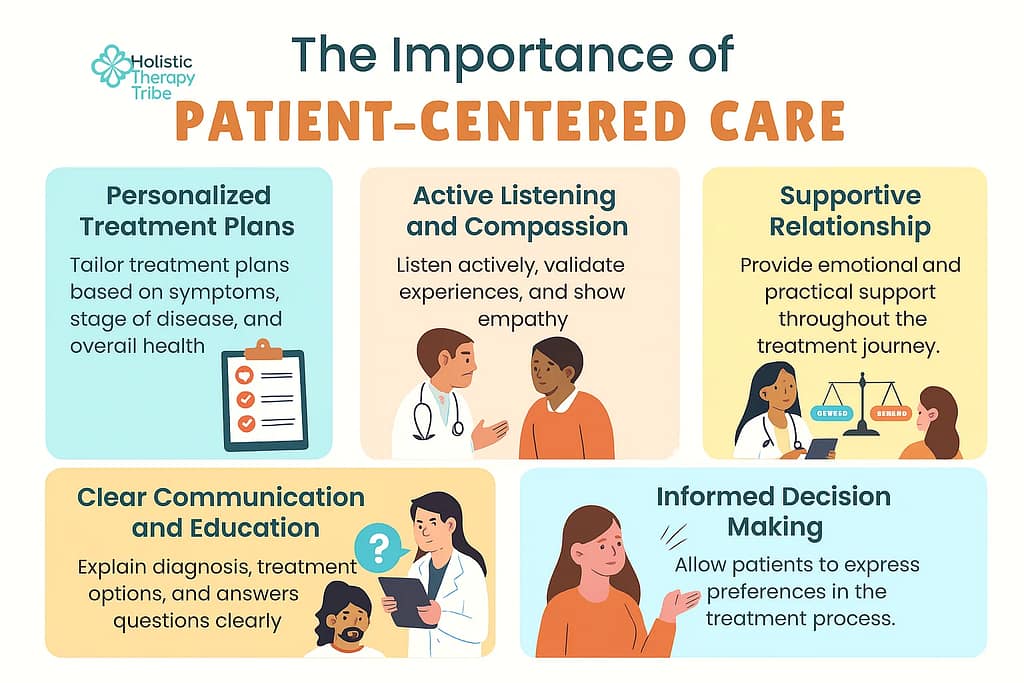
How to Research and Shortlist Potential Doctors
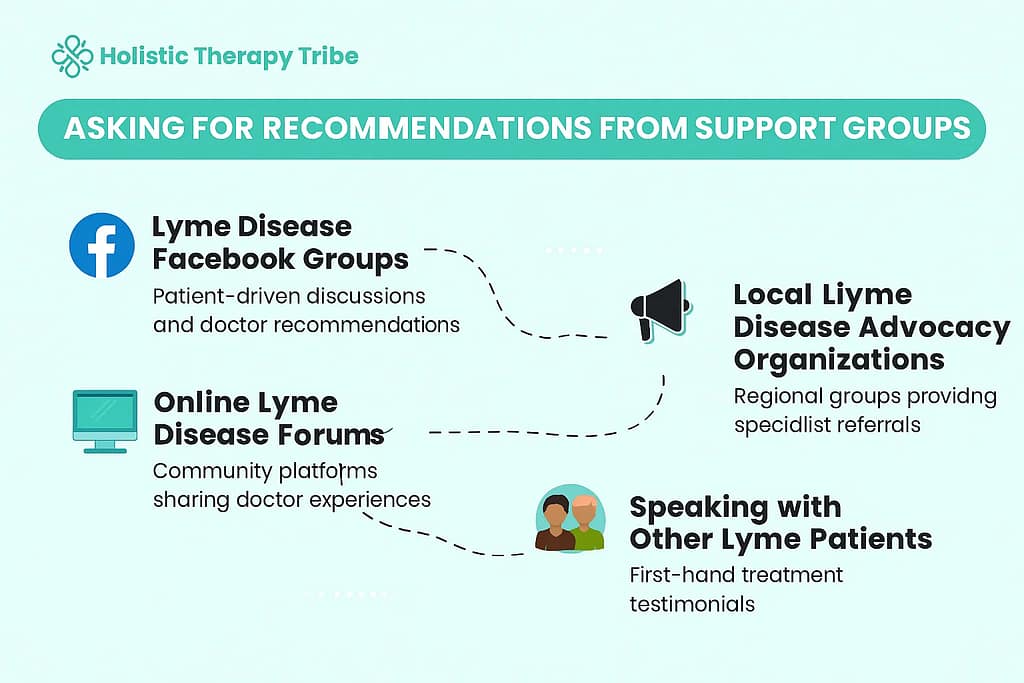
Online Doctor Review Websites:
There are websites that allow you to find reviews for doctors, who specialize in Lyme disease. They have insights from patient experiences and give a sense of how doctors interact with the patients and how effective the treatment is
Check Websites of Medical Institutions or Hospitals:
There are leading medical centers or institutions that have dedicated Lyme disease treatment programs.
Knowing When to Seek a Second Opinion
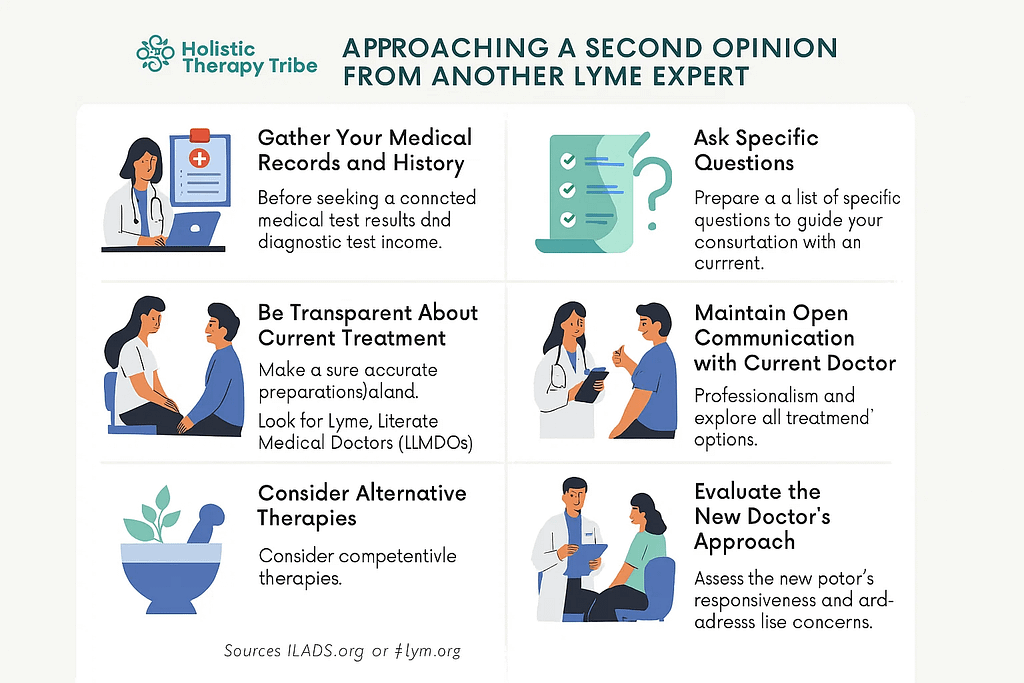
Lyme disease can be tricky to diagnose and even treat. So of course, a fresh perspective is always the best path forward. If you are dealing with Lyme disease and the personalised treatment plan is not yielding much– a second opinion might help you navigate.
What are the signs? Let us check:
1. Prolonged or Worsening Symptoms:
Despite completing the prescribed course of antibiotics or other treatments, the symptoms still persist or the treatment does not seem as effective. Relapse or chronic worsenings can indicate that the infection was not addressed adequately. Thereby, a second opinion might as well help.
2. Lack of Improvement after the timeframe:
Symptoms for early Lyme disease improve within weeks of treatment. If you are not seeing improvements in a reasonable timeframe, it is a sign that treatment might not be doing wonders for you. Lack of gradual improvement is suggestive for reassessment.
3. New or unexplained symptoms:
Development or emergence of new symptoms or complications such as neurological symptoms could suggest that Lyme disease is affecting more areas of your body or that you are dealing with co- infections that have not been treated.
4. Lack of Communication or Trust:
If you feel that your current doctor is not listening to your concerns or you are not getting the explanations that you need, it is a clear sign that it may be time to explore other options. This should prompt you to opt for a second opinion.
Conclusion
- Starting your journey to recovery from Lyme disease is a big step, but it’s one that can lead to healing and a brighter future.
- With the right doctor by your side, you can navigate the challenges of Lyme disease, stay hopeful, and find the path to better health.
- The journey may be long, but every step forward brings you closer to the life you deserve.
What’s Next for You?
Ready to explore a more complete path to recovery?
References
- International Lyme and Associated Diseases Society (ILADS). Provider search. Available from: Link
- LymeDisease.org. Lyme disease doctors: Find Lyme-literate medical professionals. Available from: Link
- American Lyme Disease Foundation (ALDF). Finding a physician. Available from: Link
- Project Lyme. How to find a doctor. Available from: Link


